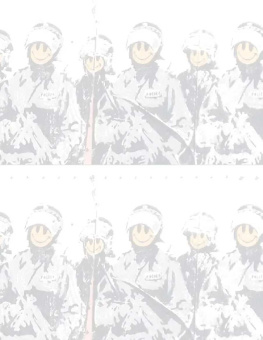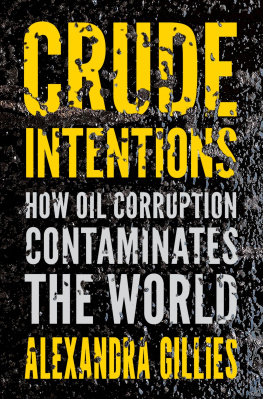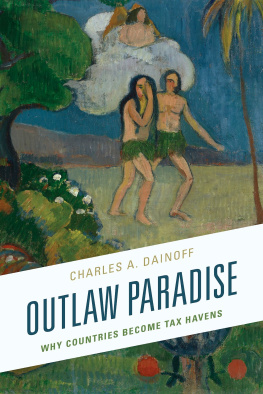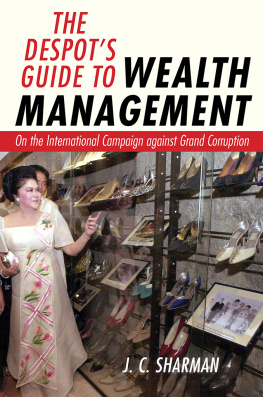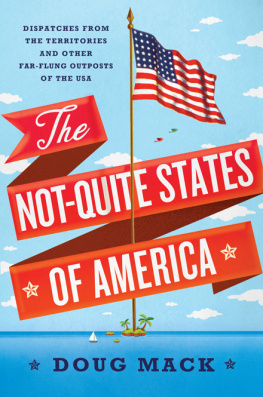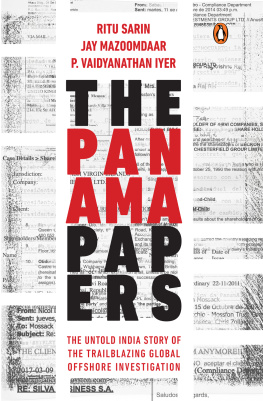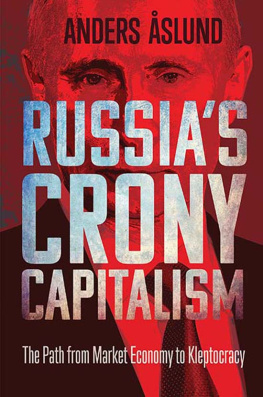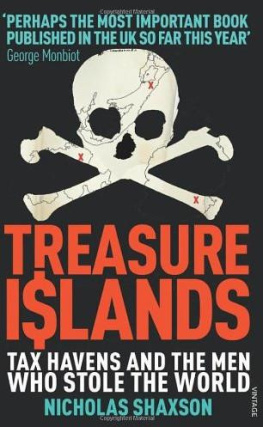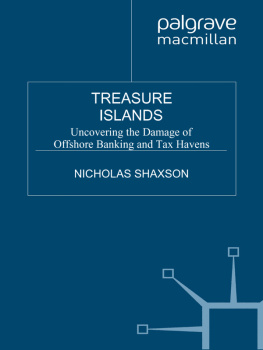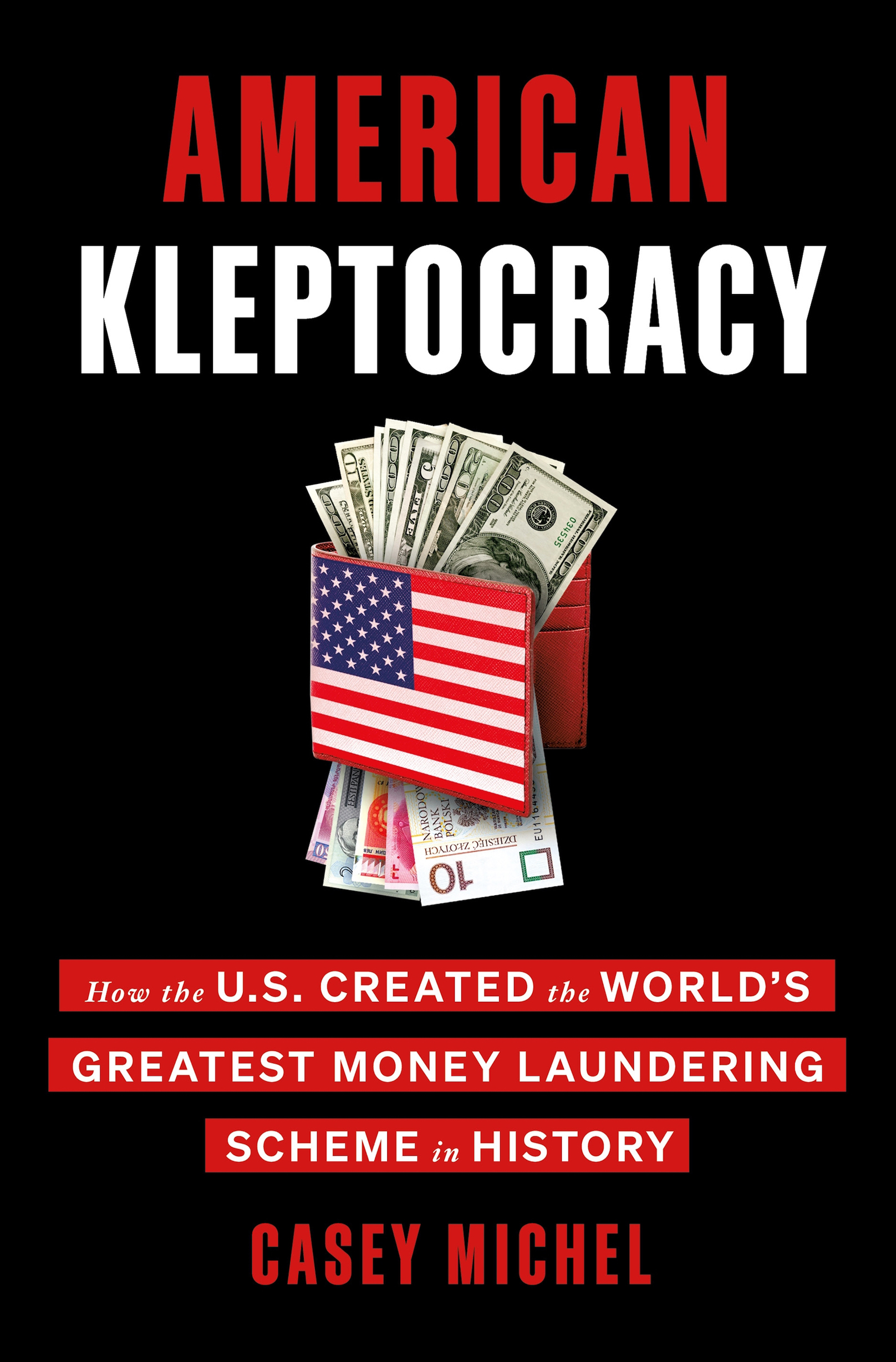Contents
Guide
Pagebreaks of the print version

The author and publisher have provided this e-book to you for your personal use only. You may not make this e-book publicly available in any way. Copyright infringement is against the law. If you believe the copy of this e-book you are reading infringes on the authors copyright, please notify the publisher at: us.macmillanusa.com/piracy.
To my parents, of course
And to my Sha
Criminals, by nature, are a cowardly and superstitious lot.
Jeph Loeb
The Cold War is over. The gangsters won.
Paul Massaro
Estimated amount of private wealth located in global financial secrecy jurisdictions: $2432 trillion
Total percentage of global wealth held in offshore financial assets: 10 percent
Amount developing countries have lost in unrecorded capital flight since 1980: $16.3 trillion
Annual global foreign aid: $135 billion
Total number of companies formed in Delaware: 1.5 million
Topline estimate of assets held in anonymous South Dakota trusts: $900 billion
Percentage of U.S. in which anonymous real estate purchases are still legal: 98 percent
Total amount Donald Trump properties made from clients matching money laundering profiles before 2016: $1.5 billion
The country most complicit in helping individuals hide their finances, according to the Tax Justice Network: the United States of America
The rich were just the tracer dye in the water, the clearest evidence of cultural drift.
Michael Lewis
When Teodoro Teodorin Nguema Obiang Mangue was growing up in the small central African country of Equatorial Guinea, he appeared to have it all. He was born with power: since the late 1970s, his father had run the country as a despot overseeing a murderous regime buoyed and financed by unending flows of crude oil. As a result, Teodorin enjoyed flaunting his wealth however he could. He had diamond-studded Rolexes and hilltop megamansions. He owned fleets of high-end carsLamborghinis, Maseratis, you name itwhich he steered around the nations capital, Malabo, attracting the interest of struggling street peddlers, impoverished shop owners, and the emaciated schoolchildren who populated the streets. He had women on his arm, from places as far away as Spain, Brazil, France, or even the United States. He poured money into private jets and bespoke suits and parties that would last for days on end, and told confidants about plans to build 200-foot yachts fitted with shark tanks. He even dreamed of one day creating an international entertainment empire, setting himself up as the Jay-Z of Africa. Frankly, he had more wealth than he knew what to do withless a big fish in a small pond and more a giant whale in an impossibly small puddle.
But there was, behind it all, an insecurity impossible for Teodorin to escape: A trembling lack of self-worth, which everyone around him could pick up on. A feeling that he could never quite measure up, either to his father or to the billionaires he met with, traveled with, or consorted with. Much of that insecurity came from the fact that Teodorins father, now the longest-serving dictator in the world, never thought much of his son. Ignoring him, talking down to him, the dictator treated his son as he did many of his other underlings: dismissively, as nothing more than an imbecile, with as little talent as he had acumen. While his father tortured political opponents and jailed journalists, eliminating opposition and laying the groundwork for his heir apparent, Teodorin lacked the discipline and focus of a leader-in-training. He was always more interested in playing with his luxury cars, or indulging in yet another weeklong drug binge with his friends and hangers-on, than in perfecting the skill set required to oversee a modern dictatorship. When his father tried to teach him the details of foreign policy, or how to manage the countrys economics, Teodorin would try to pay attention, but, still groggy from the night or week or month before, he couldnt get it to stick. Constantly hungover or strung out, he showed little promise, and constantly left his father embarrassed and angered at his sons incompetence. Teodorin is so stupid, so self-indulgent, so selfish that discretion is the last thing that he has, said one investigator who has followed Teodorins exploits over the last two decades. I think Teodorina man now pushing into his fiftiesreached his potential maturity when he was about ten.
That rampant insecurity also had to do with the reality that so much of Teodorins wealth, which may now stretch into the billions, was so obviously, so transparently, ill-gotten. That it was so clearly tied to his fathers bloody, savage rule, which allowed only his family and a handful of others in their small, nub-shaped country to profit. That it came about only because his father controlled the levers of power in Equatorial Guinea, a country whose state-run media referred to the dictator as a god, a man in permanent contact with the Almighty. Despite being the country with the highest per capita GDP on the continent, Teodorins Equatorial Guinea now has one of the lowest life expectancies (58 years) and highest infant mortality rates (6 deaths per 100 live births) in the world.
The money in Teodorins pockets wasnt illegal, per se; given the nature of his fathers dictatorship, everything he and his family did was technically legal according to Equatoguinean law. But this money was illegitimate: pilfered from his countrys treasury, stolen from the people it should have served most, available only because he was the son of a dictator. And everyoneboth domestically and internationallyknew it. No matter how much money Teodorin threw around, no matter how much he was worth, his money would always be tainted.
Which points directly to the final reason for Teodorins insecurity. With his dark skin and charcoal eyes, Teodorin, born in 1968, came of age when the only members of the billionaire class were Europeans or North Americanswhen wealth was, in essence, white. Sure, there were members of the monied class who were non-white. But they tended to be either fellow tyrants, like Haitian dictator Jean-Claude Baby Doc Duvalier (estimated to be worth nearly $1 billion), or neighboring megalomaniacs, such as the Democratic Republic of Congos Mobutu Sese Seko (worth upward of $5 billion, and whose name translates to the all-powerful warrior who, because of his endurance and inflexible will to win, goes from conquest to conquest, leaving fire in his wake).
There was one figure, though, who by the mid-1980s proved that the world of stratospheric wealth wasnt reserved only for the lily-white: Michael Jackson. The pop singer may have been American, but hehis reach and his status, his music and his modelwas global. He was an icon in corners of the world that Americans had never heard of. That was especially true for the rising postcolonial nouveau riche generation emerging in subSaharan Africa. From an early age, Teodorin wanted to give this air of being cool, being a big star, Tutu Alicante, an Equatoguinean activist whos arguably done more than anyone to highlight Teodorins crimes, told me. And Michael Jackson was a global sensation for young kids in Africa to seeto see this Black kid become so successful.
Which is why, when Jackson died in the summer of 2009, Teodorin spied an opportunity. He came up with an idea that would help with multiple aims simultaneously: how to transform his suspect money into perfectly clean, perfectly legitimate assets; how to honor the man who showed that being Black and wealthy was perfectly acceptable; how to take a significant step toward becoming the celebrity mogul hed long dreamed of being; and how to try to convince his father that, actually, he knew what he was doing with his money, and that he could be trusted whenever the time came for transition in Equatorial Guinea. It may not have been a wise planits unclear exactly why Teodorin thought his father would look at Michael Jackson memorabilia as a sign of his sons abilitiesbut it was his plan, and he was determined to succeed.


